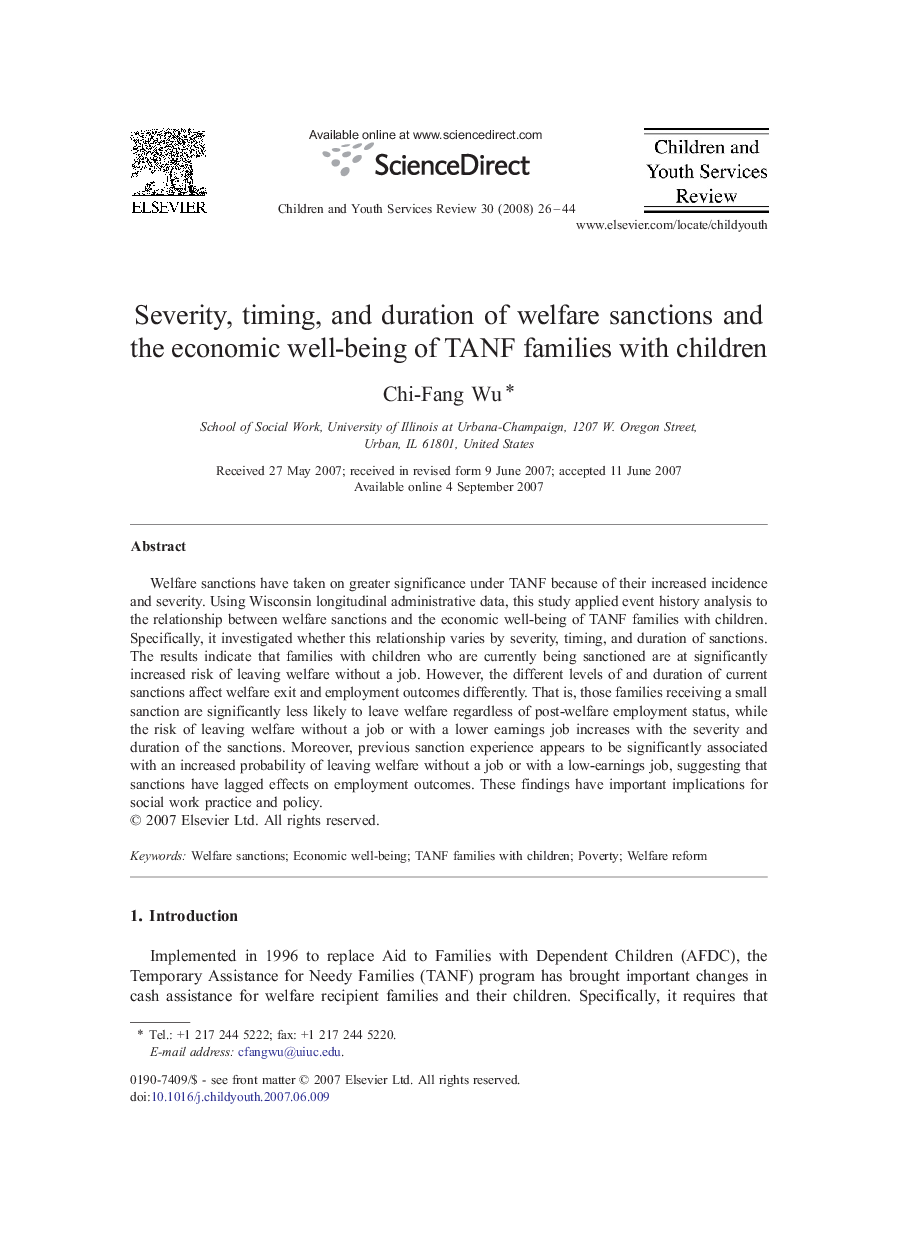| Article ID | Journal | Published Year | Pages | File Type |
|---|---|---|---|---|
| 347060 | Children and Youth Services Review | 2008 | 19 Pages |
Welfare sanctions have taken on greater significance under TANF because of their increased incidence and severity. Using Wisconsin longitudinal administrative data, this study applied event history analysis to the relationship between welfare sanctions and the economic well-being of TANF families with children. Specifically, it investigated whether this relationship varies by severity, timing, and duration of sanctions. The results indicate that families with children who are currently being sanctioned are at significantly increased risk of leaving welfare without a job. However, the different levels of and duration of current sanctions affect welfare exit and employment outcomes differently. That is, those families receiving a small sanction are significantly less likely to leave welfare regardless of post-welfare employment status, while the risk of leaving welfare without a job or with a lower earnings job increases with the severity and duration of the sanctions. Moreover, previous sanction experience appears to be significantly associated with an increased probability of leaving welfare without a job or with a low-earnings job, suggesting that sanctions have lagged effects on employment outcomes. These findings have important implications for social work practice and policy.
